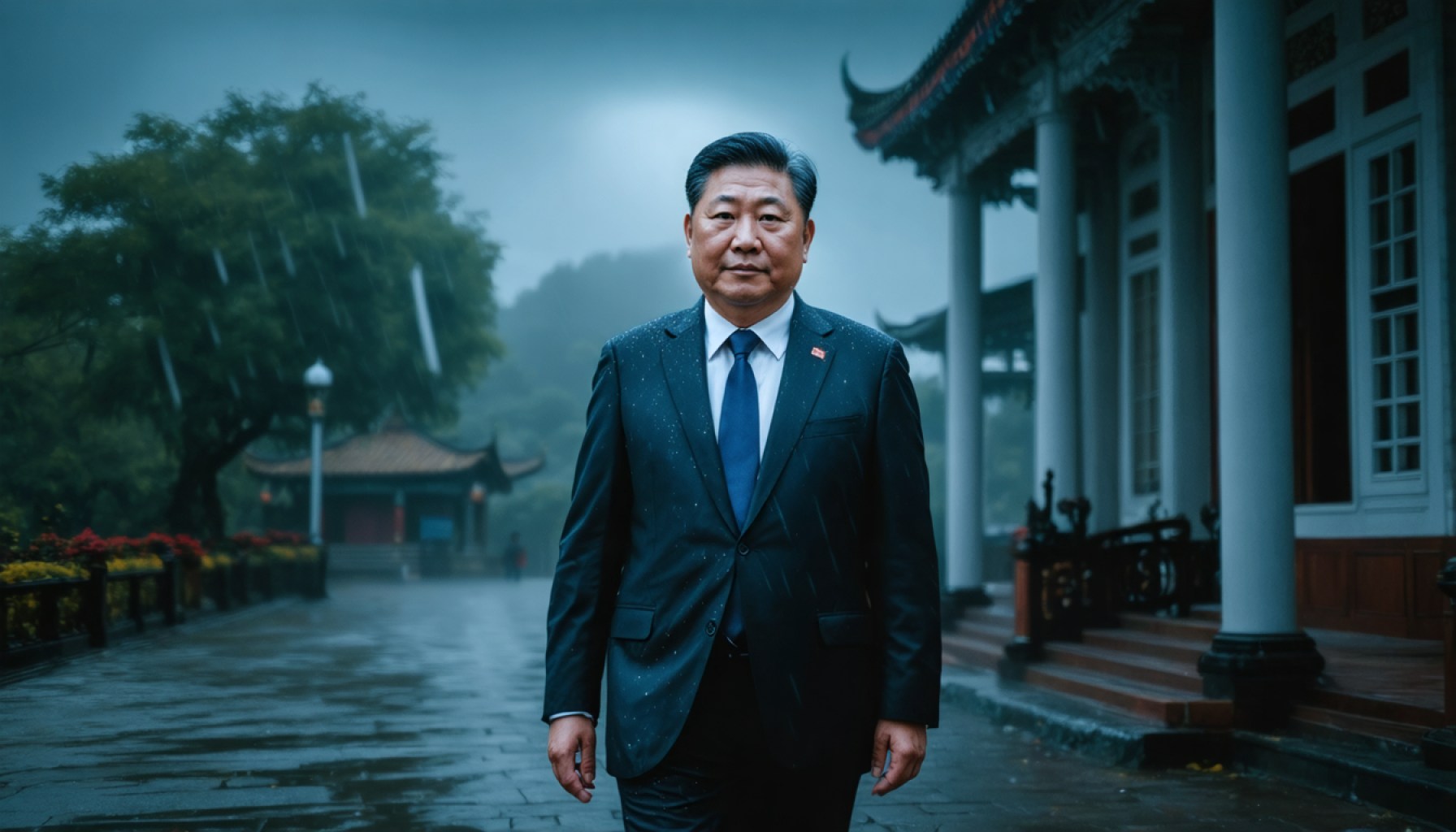- Jiang Chaoliang, a prominent Chinese political figure, is under investigation for major discipline and law violations.
- Jiang, currently the Deputy Director of the Agricultural and Rural Affairs Committee, has served as Governor of Jilin and Party Secretary of Hubei.
- The Central Commission for Discipline Inspection and the National Supervisory Commission are spearheading the investigation, highlighting the focus on accountability in Chinese politics.
- This development underscores the importance of ethical governance and serves as a warning to political figures that integrity is non-negotiable.
- The investigation reflects China’s ongoing commitment to transparency and high standards in leadership.
The political arena in China witnesses a seismic tremor as a leading figure, Jiang Chaoliang, faces intense scrutiny. Currently serving as the Deputy Director of the Agricultural and Rural Affairs Committee of the National People’s Congress Standing Committee, Jiang has become the focus of an investigation for alleged severe violations of discipline and law. This development has left many in political circles both startled and contemplative.
Born in August 1957, Jiang’s career trajectory has been impressive, occupying positions such as Governor of Jilin Province and Party Secretary of Hubei. His extensive experience and influence in regional politics have made this announcement especially striking. With these roles come both immense responsibility and the potential for pitfalls, the latter now confronting Jiang head-on.
The Central Commission for Discipline Inspection and the National Supervisory Commission have launched a comprehensive examination into the depths of his conduct. This investigation underscores the relentless drive for accountability in Chinese governance, signaling a stern warning to all within the political landscape.
What does this mean? The probe into Jiang Chaoliang is a clarion call, emphasizing the gravity of ethical governance. Amidst the corridors of power, this unfolding narrative serves as a potent reminder: no office, regardless of prestige, offers sanctuary from the rigorous pursuit of integrity. For the broader public observing these events, it is a testament to transparency and the quest to uphold the highest standards within governmental ranks. As the story develops, its ripples will undoubtedly shape the conversations about trust and accountability in leadership.
The Big Shake-Up in Chinese Politics: What Jiang Chaoliang’s Investigation Means for Governance and Society
How-To Steps & Life Hacks: Understanding Political Accountability
1. Stay Informed: Follow reputable news sources for updates on the investigation of Jiang Chaoliang. Staying well-informed is crucial for understanding political dynamics.
2. Analyze Sources: Compare reports from multiple outlets to get a balanced view, as some sources may have biases.
3. Engage With Experts: Seek analyses by political experts or scholars who can offer deeper insights into the investigation’s ramifications.
Real-World Use Cases: The Impact of Governance Scrutiny
– Strengthened Governance: Investigations like Jiang’s highlight the necessity of accountability mechanisms in governance, demonstrating how scrutiny can lead to more transparent and effective political systems.
– Public Trust: Rigorous investigations help restore public trust by showcasing a commitment to ethical leadership.
Market Forecasts & Industry Trends: Political Stability and Economic Impacts
– Political shifts can influence market stability. Investors might observe fluctuations based on perceived stability within China’s political landscape. This investigation reinforces the importance of ethical governance in maintaining economic growth and investor confidence.
Reviews & Comparisons: Anti-Corruption Measures in China
– China’s anti-corruption drive is one of the most extensive in the world. Compared to other countries, China’s efforts, led by organizations like the Central Commission for Discipline Inspection, highlight a robust system aimed at maintaining a disciplined governance structure.
Controversies & Limitations: The Challenges Ahead
– Challenges: A challenge faced by investigations is avoiding political bias and ensuring that they focus solely on ethical violations without becoming tools for political maneuvering.
– Debate: While some praise these investigations for promoting integrity, others criticize them for potentially being shrouded in a lack of transparency and due process.
Insights & Predictions: The Future of Chinese Politics
– Increased Scrutiny: Future political figures may encounter even greater scrutiny, leading to a potentially more transparent political environment.
– Trust Building: Comprehensive investigations can shift public perceptions, fostering greater trust in local and national governance.
Pros & Cons Overview: Governance Integrity Initiatives
Pros:
– Enhances transparency and accountability.
– Deters unethical behavior within political hierarchies.
– Bolsters public confidence in leadership.
Cons:
– Risks of politicization can undermine the perceived fairness of investigations.
– Can create instability within governance structures during transitional phases.
Actionable Recommendations
– For Citizens: Engage with political processes by participating in community forums, discussions, or educational events about government accountability to better understand and contribute to civic life.
– For Leaders: Promote a culture of transparency and accountability within organizations by implementing regular audits and providing ethics training.
By staying informed and engaged, both citizens and leaders can navigate the complex landscape of political accountability effectively. For more insights into global governance and anti-corruption strategies, consider exploring resources on the Transparency International website.
